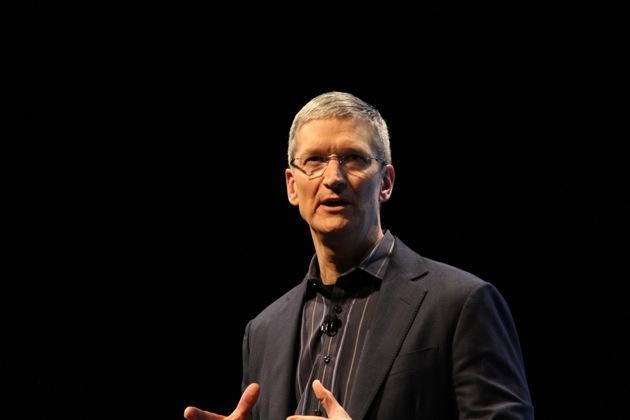Just one day is all it took for state-run media outlets in China to sidle up to Apple after decrying the company's supposedly harmful after-sales practices, with the flip-flop in rhetoric spurred by CEO Tim Cook's apology letter on Monday.
According to Reuters, the same newspapers that attacked Apple have come to laud its chief executive's proactive measures — a rare apology letter issued in a distinct departure from the traditionally tight-lipped company.
"The company's apology letter has eased the situation, softening the tense relationship between Apple and the Chinese market," popular tabloid the Global Times said. "Its reaction is worth respect compared with other American companies." The paper is an offshoot of Communist Party mouthpiece the People's Daily.
Even the Foreign Ministry gave a nod to Apple's actions in light of the one-way mud slinging, saying the tech giant "conscientiously" responded to consumers' demands.
"We approve of what Apple said," ministry spokesman Hong Lei said.
With China being Apple's second-largest market, expected to soon become its biggest with smartphone sales booming, the company was likely looking to put the brakes on the Chinese government's media machine. It was estimated on Monday that the state-run media barrage could cost the iPhone maker some $13 billion in sales.
The anti-Apple campaign began with a China Central Television broadcast meant to spark discontent among Chinese consumers over after-sales service supposedly "biased against Chinese consumers in its warranty and consumer service policies." Following a nearly rote response from Apple PR, the People's Daily dug in with a disparaging front-page story about the company's reluctance to meet with press over the matter.
On Monday, Apple posted Cook's lengthy apology letter on its webpage, clarifying warranty practices and enhancing repair policies regarding the iPhone 4 and 4S. Perhaps most important to the Chinese government, and by extension its media, was the acknowledgment that Apple's lack of transparency could lead to "misunderstandings," for which Cook offered his "sincere apologies."
 Mikey Campbell
Mikey Campbell








 Charles Martin
Charles Martin

 Malcolm Owen
Malcolm Owen
 William Gallagher
William Gallagher
 Christine McKee
Christine McKee
 Marko Zivkovic
Marko Zivkovic
 Mike Wuerthele
Mike Wuerthele










47 Comments
Way to Go TC... Now we need China Mobile to sell the iDevices please. Go Apple.
Shows you how important China is to Apple. Who else has Apple grovelled to?
Shows you how important China is to Apple. Who else has Apple grovelled to?
Just what I was thinking. When it comes to the US Gov Apple's attitude is "we'll see you in court". TC is smart enough to know where growth lies and who needs pandering to and who doesn't.
In the last few weeks we had Italy and now China. I believe that last year, there was another European country that brought charges against them by not clarifying the required warranty by law, for their products and instead pushing their Apple Care. I am no fan of extended warranties and do believe that for products such as iPhone, it should be required by law, that the manufacturer guaranties its product for at least the duration of a contract, that would be 2 years in most countries. Apple can be a pioneer in this area and offer at least two years for devices such as iPhone, iPad off the bat. This may not please stockholders but judging from the last few months, nothing short of total market domination would.
Wall Street doesn't care about that. They sank AAPL yesterday on bad news and will not react to positive. They have simply decided to make profits on any other stock except Apple until further notice.